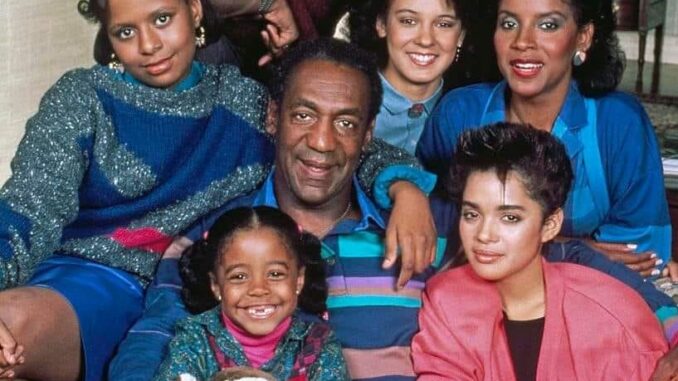
The Cosby Show, once a cultural phenomenon and a beloved fixture of American television, was abruptly canceled in 1992 after eight seasons, leaving fans and critics alike questioning what went wrong. Despite its monumental success and status as a trailblazer for Black representation on TV, the show’s end marked the beginning of a dramatic and controversial unraveling of its star, Bill Cosby.
In this article, we delve into the complex reasons behind The Cosby Show‘s cancellation, from behind-the-scenes struggles, shifting networks priorities, to the shocking scandals that would later surface involving Cosby himself. What started as a sitcom revolution ended in an unexpected fall from grace for the actor at its helm. Here’s a look at the untold story of the show’s decline, and how real-life events dramatically altered the legacy of a TV classic.
The Impact of The Cosby Show on TV and Society
Premiering in 1984, The Cosby Show revolutionized television by presenting an affluent, educated African-American family at a time when most TV shows depicted stereotypical portrayals of Black characters. It garnered critical acclaim, dominated ratings, and provided a rare example of positive representation for Black Americans. Cosby’s portrayal of Dr. Heathcliff Huxtable became an iconic symbol of fatherhood and professionalism, shattering prevailing stereotypes of Black characters on TV. The show’s success was a pivotal moment in TV history, offering a new kind of family-friendly comedy.
The Struggles Behind the Scenes and Changing Landscape of TV
As the years went on, however, The Cosby Show began to face internal and external challenges. Network shifts, budget cuts, and changes in the entertainment landscape began to take their toll. Cosby himself was reportedly difficult to work with at times, clashing with producers, writers, and even some of the cast. With the rise of other popular shows like The Fresh Prince of Bel-Air and Family Matters, some of the show’s initial charm started to wear off, and the ratings began to slip.
But it wasn’t just behind-the-scenes drama that led to the cancellation.
The Scandal That Overshadowed the Show’s Legacy
The ultimate reason for The Cosby Show‘s cancellation, however, lies in the shocking events that unfolded years after the show went off the air. Bill Cosby’s fall from grace began long before his conviction in 2018 for multiple allegations of sexual assault. Though rumors of Cosby’s misdeeds had circulated for years, they were largely ignored or dismissed during the height of his fame. However, in the years leading up to the 2014 re-emergence of serious allegations, Cosby had already begun facing mounting personal and professional scrutiny.
As more women came forward with accusations, Cosby’s public image as America’s “favorite dad” was shattered. The negative publicity surrounding the allegations overshadowed any efforts to celebrate the show’s legacy, and networks began to distance themselves from the actor.
In hindsight, the cancellation of The Cosby Show can be seen as a part of the larger unraveling of Cosby’s career, which was directly tied to the severe allegations that eventually led to his conviction and prison sentence.
What We Can Learn from the Rise and Fall of The Cosby Show
The Cosby Show was a groundbreaking show in many ways, and its legacy as one of the most important family sitcoms in TV history is indisputable. However, its cancellation and the events that followed serve as a stark reminder of how fame, power, and personal actions can collide in the most unexpected of ways.
This article looks beyond the simple “cancellation” of a show to explore the complexities of fame, the impact of public perception, and how a star’s personal life can deeply affect their professional one. The story of The Cosby Show is both a celebration of groundbreaking television and a cautionary tale about the fragility of public trust.
Conclusion: The End of an Era and the Continuing Legacy of The Cosby Show
Though The Cosby Show ended in controversy, its impact on television, pop culture, and the representation of African-American families on screen cannot be erased. Today, the show is often remembered for its groundbreaking contributions to TV, but it’s also an essential part of the ongoing conversation about the complexities of celebrity, accountability, and the evolution of American media.
Was The Cosby Show‘s cancellation inevitable? Or did the scandalous fall of Bill Cosby seal its fate? Keep reading as we uncover the full story.